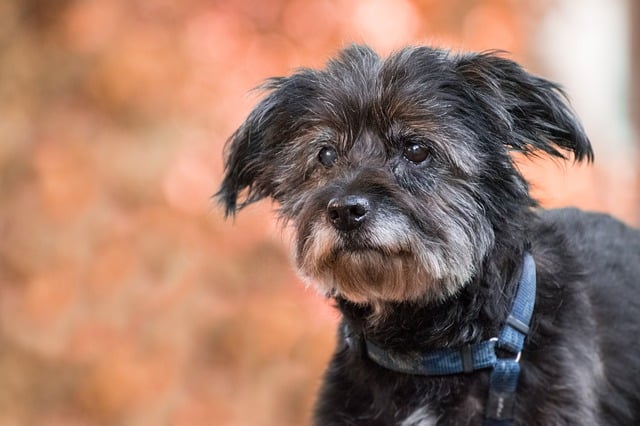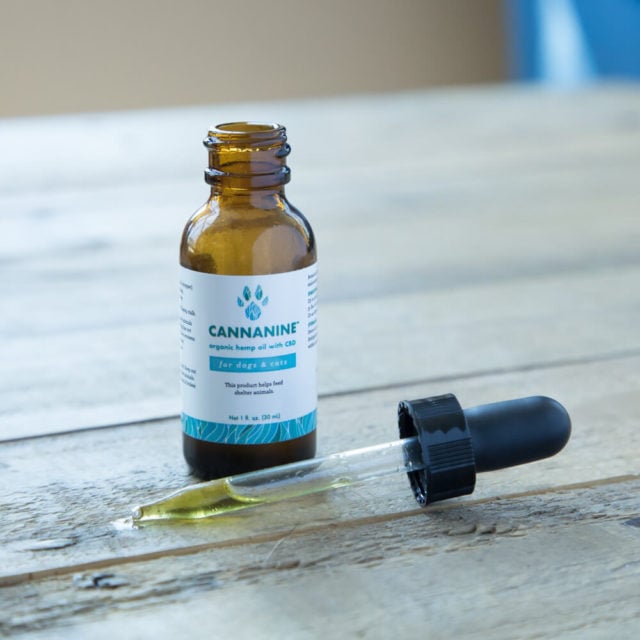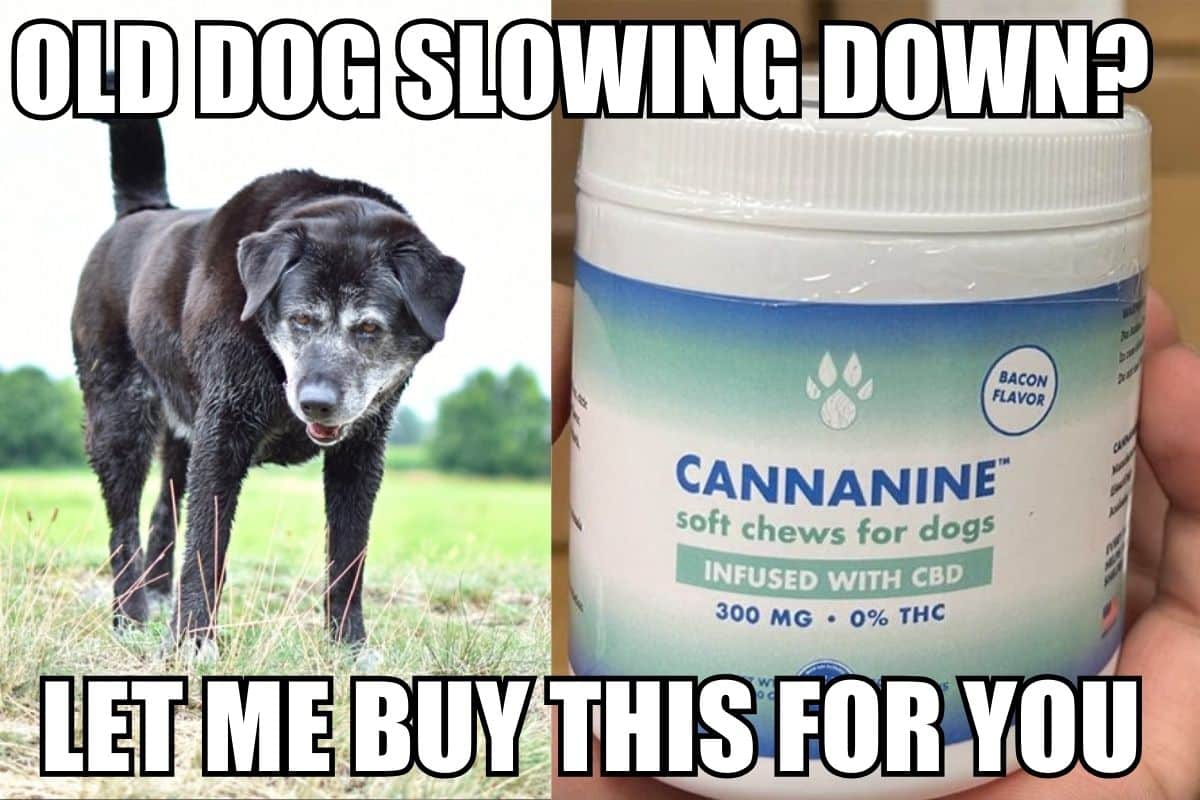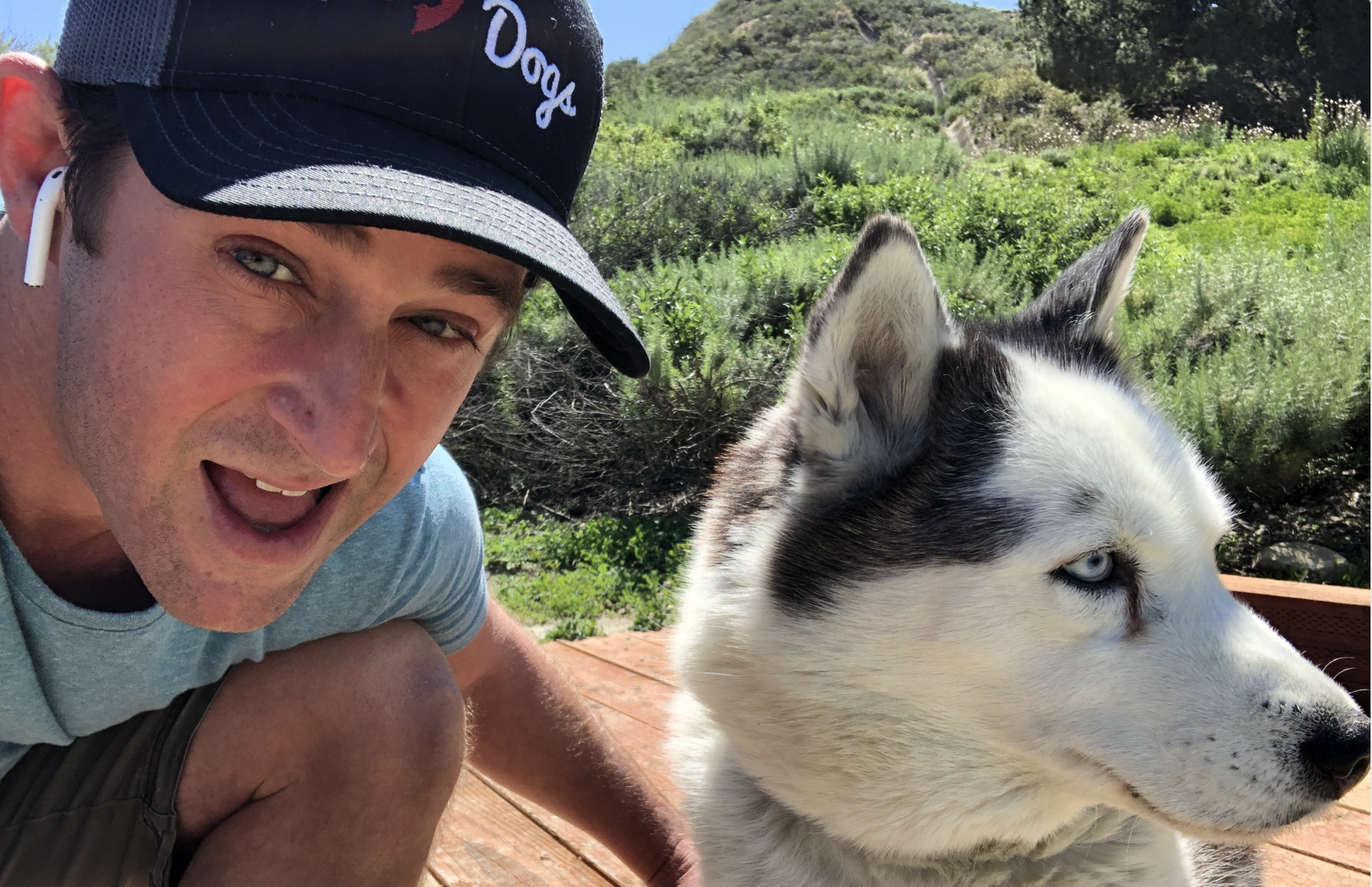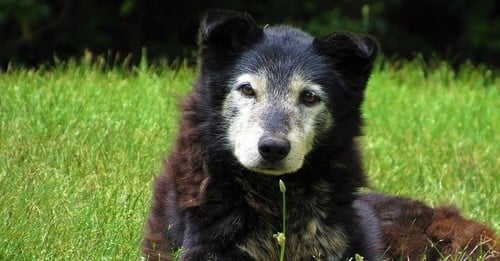
Geriatric Dog Care: Can CBD Oil Help Your Elderly Pooch?
Elderly dog care becomes an important priority as our pups enter their golden years. We make diet changes, modify their exercise routines, start giving joint health supplements, provide orthopedic bedding, and much more.
Thanks to these efforts, our dogs are living longer than ever. In fact, some veterinarians now recognize a fourth phase of life in addition to puppy, adult, and senior: the geriatric stage.
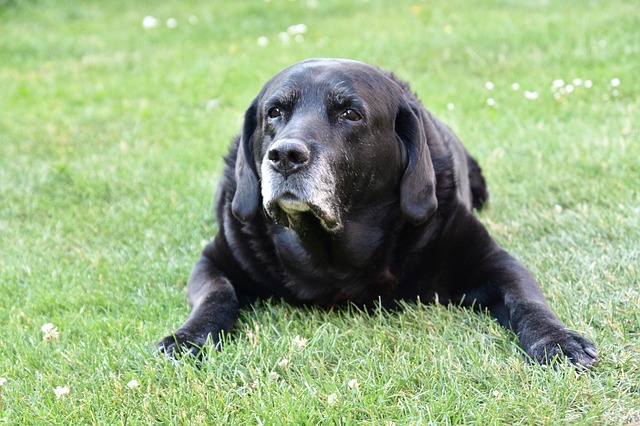
A Senior Dog vs. A Geriatric Dog
Depending on size and breed, most dogs are considered seniors somewhere between six and 12-years-old. Despite their numeric age, many of these “elderly” pets are still full of health and vitality. Instead of acting their age, they are enjoying more years as active adults.
Dogs are no longer considered seniors from a specific age until their death. Veterinarian Mary Gardner specializes in end-of-life care and says the words “senior” and “geriatric” are not interchangeable.
In order to cross into the geriatric phase, a dog must be in the final 10% of their lifespan. For small dogs, this occurs at approximately 11.5 years. Medium dogs reach geriatric status at about 10.2 years, and large breeds at around 8.9 years.
However, these are only estimates. Age is just a number, and every dog matures in their own time. According to Gardner, declining health is a much better indicator of a geriatric dog.
I think there are many parallels with our old-aged pets [compared to people] and how we can classify them as geriatric,” Gardner writes. “Regardless of their age (or breed), our geriatric pets are those that are fragile and susceptible to adverse outcomes (e.g. falls, illness) and, therefore, need different care in the home as well as the clinic.”
Unlike many healthy seniors, geriatric dogs show signs of frailty. They limp, they sleep more, they have behavioral changes, or even cognitive dysfunction.
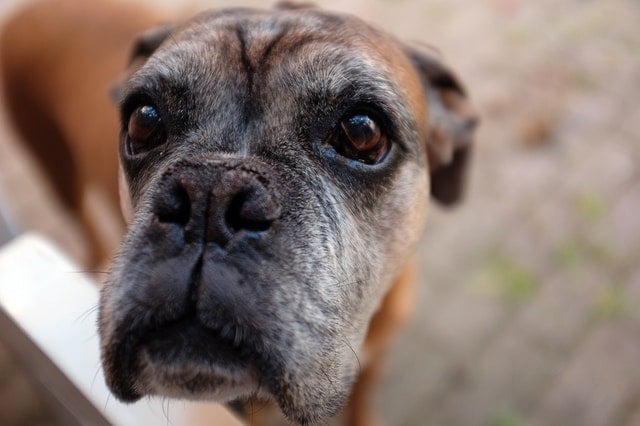
Signs Of A Geriatric Dog
- Muscle weakness
- Decreased physical activity
- Slower gait
- Difficulty with mobility
- Tiring more easily
- Changes in sleep patterns
- Weight changes (loss or gain)
- Impaired balance
- Social withdrawal
- Cognitive dysfunction
- Increased vulnerability to physiological stresses
Caring For Your Geriatric Dog
Schedule frequent veterinary visits.
Adult and senior dogs age roughly four years for every “human year” that passes. With this in mind, yearly exams are just not sufficient for accurate health tracking. Even bi-annual visits may not be enough if your dog takes chronic medication or suffers from a medical condition.
Ask your veterinarian to modify your geriatric dog’s wellness schedule to suit his or her specific needs. It is also important to run frequent laboratory blood tests to monitor your dog’s aging organs. Remember, an ounce of prevention is worth a pound of cure!
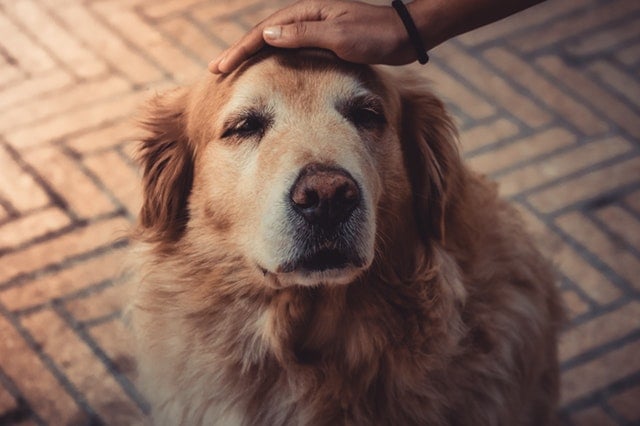
Track your dog’s body condition score.
The canine body condition scale is used by vets to determine if a dog is underweight, overweight, or has an ideal body condition. A healthy body condition score is 4-5, with lower numbers indicating a dog is too thin, and higher numbers meaning they are too heavy.
Just like humans, some dogs gain or lose weight as they age. Ask your vet to show you how to evaluate your dog’s body condition at home.
Adjust diet as needed.
Depending on their health, diet changes may be necessary for elderly dogs. For example, dogs with heart disease should eat a low sodium diet, while those with kidney disease do best on food with controlled electrolyte levels.
Even if your geriatric pooch does not have any special dietary needs, he or she may develop picky eating habits due to illness, decreased activity, or dental disease. Consider offering soft food, cooking for your dog, or adding bone broth to ensure proper nutrition.
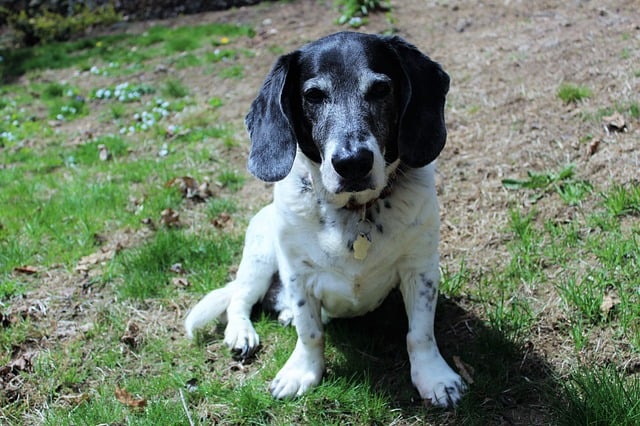
Allow your dog to determine how much exercise he needs.
Geriatric dogs typically have some level of arthritis or joint pain. They may have “good days and bad days,” or experience occasional fatigue. Instead of sticking to the same old routine, allow your pooch to determine if and when it’s time to exercise.
Your elderly dog may still relish his walks, but prefer to go at a slower pace and for a shorter distance. On wet or cold days, he may opt to do his business and come right back inside.
For dogs that love to play, consider indoor activities that are less likely to result in injuries or overexertion.
Make your home as safe and comfortable as possible.
Geriatric dogs often find it increasingly difficult to navigate hard floors, staircases, and elevated furniture. Throw rugs in high traffic areas improve traction and give older dogs more confidence when walking on slick surfaces. Consider gating off stairs or adding ramps to avoid slips and falls. Carpeting the steps or adding traction strips may help, but if your dog is particularly frail or arthritic, it is not worth the risk.
If your dog loves to snuggle on the furniture with you, try using doggy steps or placing a low bench nearby to help your pooch gain access. It is also important to provide plenty of soft, supportive bedding around the home to cradle their aging joints.
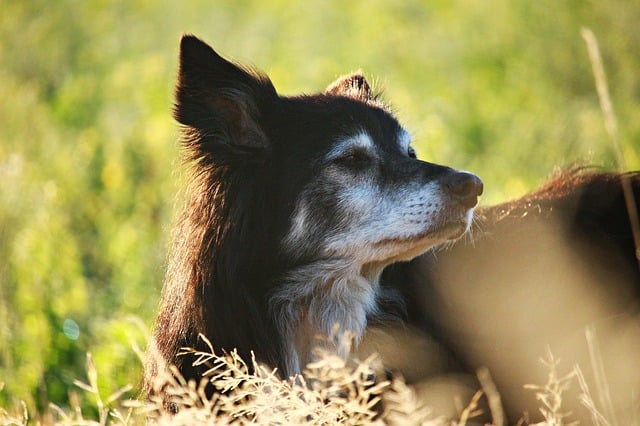
Add healthy supplements.
Elderly dogs can benefit from additional vitamins, minerals, and amino acids in their diet. Choose a high-quality multivitamin to fill in any nutritional gaps. Omega Fatty Acid supplements with DHA and EPA help improve mobility issues in dogs with joint problems. Glucosamine and chondroitin supplements are also helpful for seniors with arthritis.
CBD For Geriatric Dogs
If your geriatric dog suffers from common aging ailments, CBD may be the answer. Non-psychoactive, free of harmful THC, and legal in all 50 states, Cannanine CBD oils, treats, and topicals will never make your dog high.
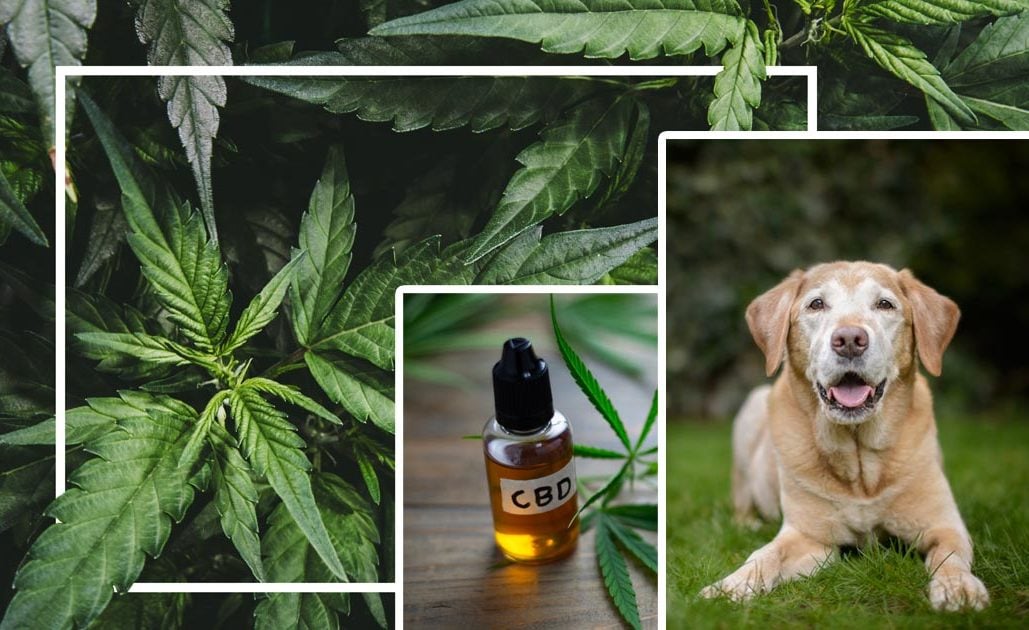
Here are a few ways Cannanine can benefit your elderly dog:
Inflammation/Chronic Pain
CBD naturally reduces inflammation in all parts of the body. While it isn’t a cure for all joint issues, it can ease the inflammation and pain associated with arthritis and minor injuries. It also helps alleviate painful symptoms of intestinal inflammation, and expedites healing after injuries or surgery.
Brain Health
Many elderly dogs experience cognitive symptoms similar to Alzheimer’s. CBD has shown the ability to support normal cellular function and promote healthy aging through mitochondrial support. In addition, CBD is currently being studied for its apparent antipsychotic properties.
Anxiety
CBD oil targets the body’s endocannabinoid system to help balance emotions. It works by initiating chemical transmissions between receptors that help the dog feel calm in times of stress. Use it for elderly dogs with separation anxiety, phobias, or general anxiety.
Appetite
Proper nutrition is especially important for geriatric dogs and those battling serious illnesses. When they feel nauseated or unable to eat, they become weak and even more vulnerable. CBD stimulates the appetite by triggering the body’s hunger response. It also neutralizes feelings of vertigo and nausea so your dog can dig in!
Why Choose Cannanine Over Other CBD Products?
Unfortunately, not all CBD products are created equal. Some use inferior ingredients, while others are made for humans, not pets.
Cannanine is specially formulated with dogs and cats in mind so it is 100% free of THC, the potentially harmful chemical that causes marijuana’s signature high. Not only is it safer for your pooch, all Cannanine products are made in the USA from human-grade, non-GMO, organically-grown hemp.
View our 8 Things To Consider Before Buying CBD Oil for Your Dog for more helpful tips.
These statements have not been evaluated by the Food and Drug Administration. This product is not intended to diagnose, treat, cure, or prevent any disease. The information on this website is not intended to replace a one-on-one relationship with a qualified health care professional.

